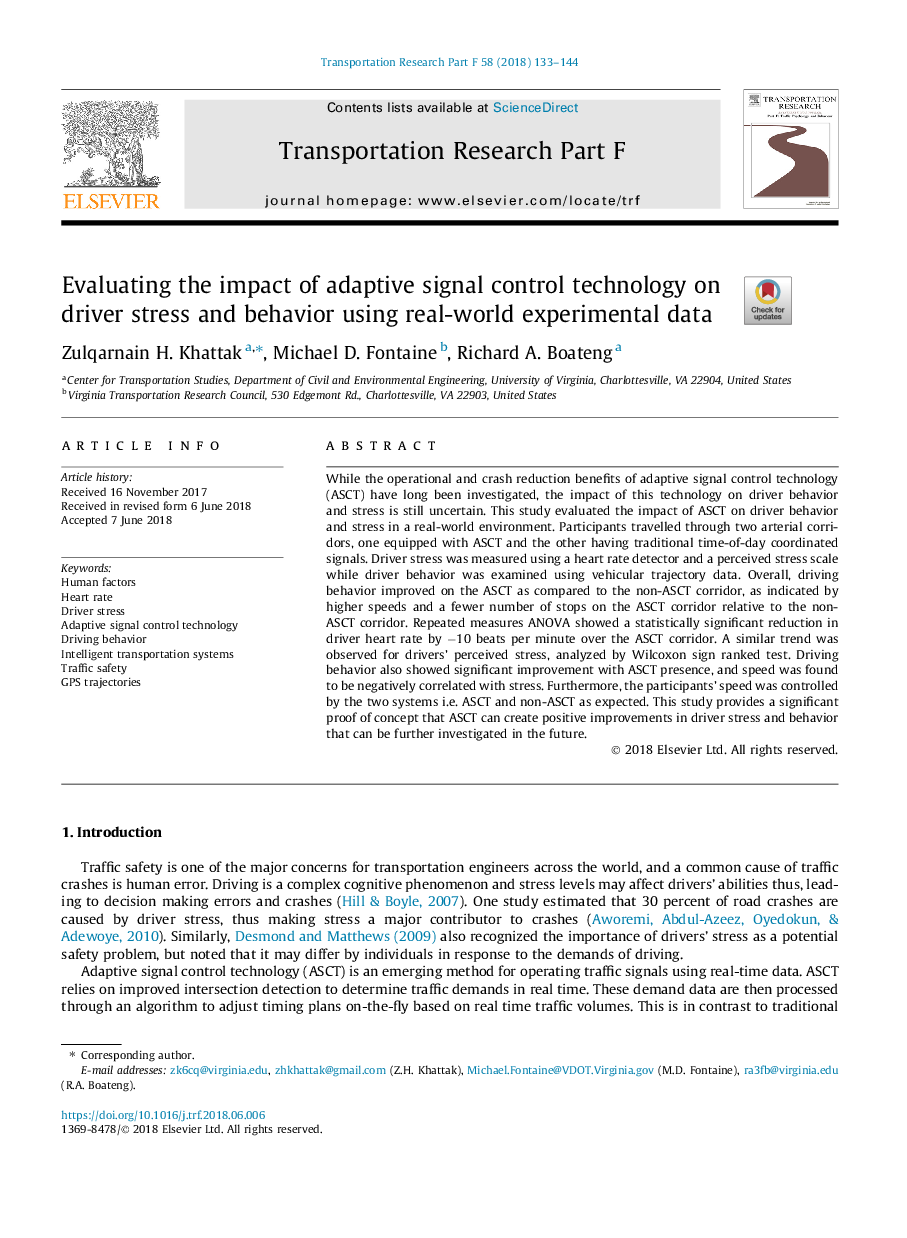| کد مقاله | کد نشریه | سال انتشار | مقاله انگلیسی | نسخه تمام متن |
|---|---|---|---|---|
| 7257500 | 1472429 | 2018 | 12 صفحه PDF | دانلود رایگان |
عنوان انگلیسی مقاله ISI
Evaluating the impact of adaptive signal control technology on driver stress and behavior using real-world experimental data
ترجمه فارسی عنوان
ارزیابی تأثیر تکنولوژی کنترل سیگنال انطباقی در استرس و رفتار راننده با استفاده از داده های آزمایشی واقعی
دانلود مقاله + سفارش ترجمه
دانلود مقاله ISI انگلیسی
رایگان برای ایرانیان
کلمات کلیدی
موضوعات مرتبط
علوم انسانی و اجتماعی
روانشناسی
روان شناسی کاربردی
چکیده انگلیسی
While the operational and crash reduction benefits of adaptive signal control technology (ASCT) have long been investigated, the impact of this technology on driver behavior and stress is still uncertain. This study evaluated the impact of ASCT on driver behavior and stress in a real-world environment. Participants travelled through two arterial corridors, one equipped with ASCT and the other having traditional time-of-day coordinated signals. Driver stress was measured using a heart rate detector and a perceived stress scale while driver behavior was examined using vehicular trajectory data. Overall, driving behavior improved on the ASCT as compared to the non-ASCT corridor, as indicated by higher speeds and a fewer number of stops on the ASCT corridor relative to the non-ASCT corridor. Repeated measures ANOVA showed a statistically significant reduction in driver heart rate by â10 beats per minute over the ASCT corridor. A similar trend was observed for drivers' perceived stress, analyzed by Wilcoxon sign ranked test. Driving behavior also showed significant improvement with ASCT presence, and speed was found to be negatively correlated with stress. Furthermore, the participants' speed was controlled by the two systems i.e. ASCT and non-ASCT as expected. This study provides a significant proof of concept that ASCT can create positive improvements in driver stress and behavior that can be further investigated in the future.
ناشر
Database: Elsevier - ScienceDirect (ساینس دایرکت)
Journal: Transportation Research Part F: Traffic Psychology and Behaviour - Volume 58, October 2018, Pages 133-144
Journal: Transportation Research Part F: Traffic Psychology and Behaviour - Volume 58, October 2018, Pages 133-144
نویسندگان
Zulqarnain H. Khattak, Michael D. Fontaine, Richard A. Boateng,
